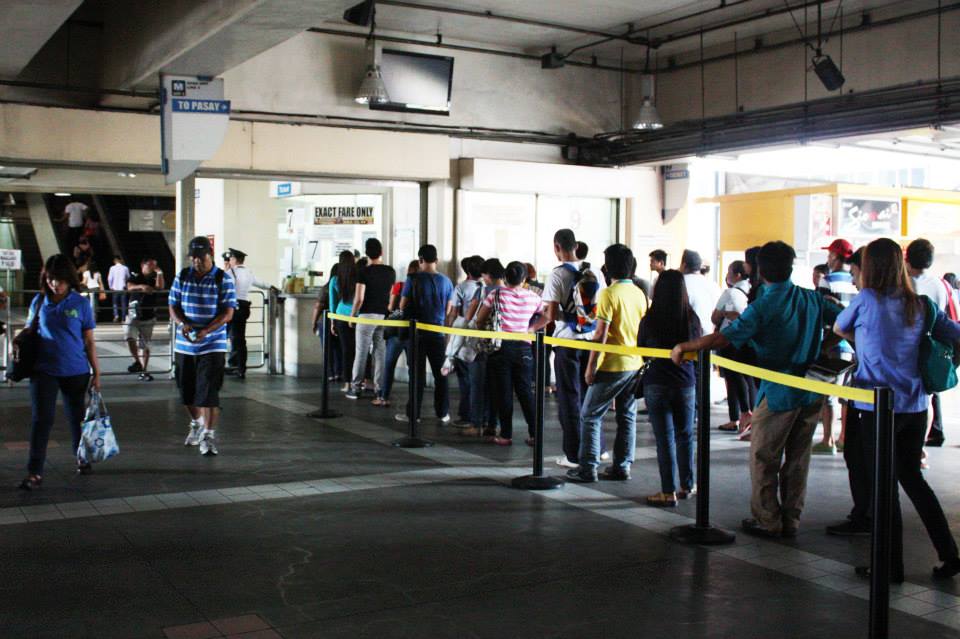News
DOTr vows better, reliable service for MRT-3 passengers

An official of the Department of Transportation (DOTr) on Tuesday assured the riding public of a better and reliable service of the Metro Rail Transit Line 3 (MRT-3) system once it gets the services of a new maintenance provider within the next three to six months. (Photo: MRT-3 Philippines/Facebook)
MANILA — An official of the Department of Transportation (DOTr) on Tuesday assured the riding public of a better and reliable service of the Metro Rail Transit Line 3 (MRT-3) system once it gets the services of a new maintenance provider within the next three to six months.
This, following the department’s termination of the contract with Busan Universal Rail Inc. (BURI) Monday due to various issues.
“We are aiming to procure a reliable, financially and technically capable MRT maintenance provider within the next three to six months,” DOTr Undersecretary for Railways Cesar Chavez said in a radio interview Tuesday.
Chavez said Canadian firm Bombardier Transportation Signal Ltd., the manufacturer of the safety components for the signaling system, is set to meet with the officials of the DOTr and MRT to submit a list of the necessary spare parts and their procurement costs.
“This will enable us to procure directly from them. Bombardier assures that they will be in charge of the maintenance of the spare parts. We aim to conduct massive procurement of the spare parts within the next few days,” Chavez disclosed.
The series of breakdowns and technical glitches in the MRT-3 is almost an everyday occurrence lately, leaving hundreds of commuters stranded.
The department cited poor performance, failure to ensure availability of required number of trains, failure to implement a feasible procurement plan for spare parts and noncompliance with the requirements of a complete and up-to-date Computerized Management System as reasons for terminating the maintenance contract with BURI.
Chavez said the decision was made for the safety of the riding public. He said 14-17 train sets run on any given day in the MRT short of the target of 20 train sets promised by BURI by the end of last year.
“For instance, there are only 14 trains that are fully operational in the system this morning. Six train sets are in need of major repairs and four that serve as backup in case of glitches in the system,” Chavez said.
“The average number of trains that are being deployed by Busan Rail are 16-17. They will usually add two or three more trains but these always break down. Our objective is to deploy reliable trains,” he added.
He said BURI failed to overhaul 43 light rail vehicles (LRVs) and to replace the signaling system which enables to maintain safe distances between the trains, control their speeds and automatically brakes them to avoid collision.
Earlier, the DOTr said the maintenance provider was not able to procure the spare parts from Bombardier.
From January 2016 to July 2017, there were 3,824 instances of train removals, 833 cases of unloading incidents, 98 service interruptions and six derailments.
While the procurement of a new maintenance provider is being processed, a transition team consisting of the DOTr-MRT 3, Philippine National Railways (PNR) and the Light Rail Transit Authority (LRTA) will temporarily take over the maintenance works of MRT-3.
Technical personnel from BURI will also be absorbed by the MRT-3 to avoid service disruptions. For its part, BURI wanted the DOTr to undergo arbitration proceedings to settle the issue on the MRT maintenance contract.
The firm asked the Quezon City Regional Trial Court to resolve its petition for a protection order that will stop the termination process, compel the DOTr to submit to arbitration and settle their unpaid maintenance fees.





















